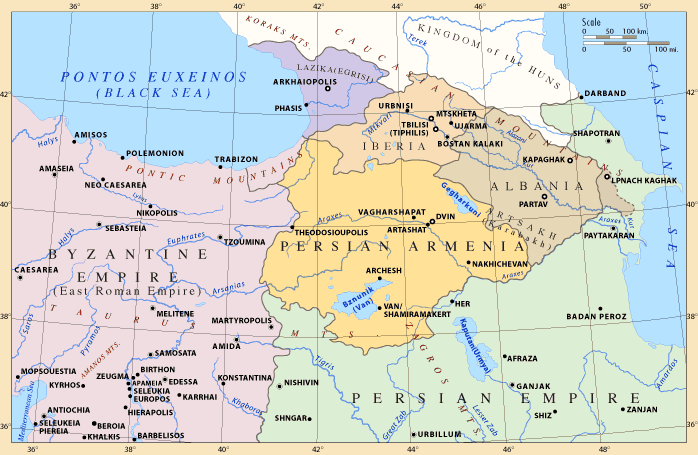The war between these two nations has, for reasons unfathomable to me, spiked the adrenaline of the end times obsessed quarters. Whatever their motivation, their lack of care with Ḥadīth, in terms of interpretation and translation is shocking. Like the scholar of Johannesburg, they are generally Ḥanafī Sunnī, not heretics. Is thus to be hoped that they will desist from this sensationalist agenda driven interpretations, especially those who are linked to the teacher of my teachers, Shaykh ʾAbul Ḥasan ʿAlī ʾan-Nadwī, a paragon of moderation and an unbiased examiner of facts.
There are two Ḥadīth which they quote from ʾal-Mustadrak lil Ḥākim. The translations are theirs, not mine:

Dubious Translations
I shall not comment on the state of the English in these translations, but I must dispute some very questionable translations.
Firstly, any decent dictionary can confirm that إِذَا خُيِّرْتُمْ means “when you will choose”. “If you are forced to choose” has insertions that has no justification.
Secondly, الْأَرَضِينَ is a plural word. To change it to the Arabic dual is a disingenuous ploy to make the Ḥadīth seem to fit a war between two nations. Further, where does the word “nation” even come from? الْأَرَضِينَ means “earths” or “lands”
We are all human, prone to error, but to change, “When you will choose between the lands” into “If you are forced to choose between two nations…” shows utter carelessness with the words of Allāh’s Messenger (ﷺ) at best, and context points to the possibility of deliberate slanting of the translation to achieve an intended meaning. In either case, these are crimes against Allāh’s Messenger (ﷺ) which should not be condoned.
The second Ḥadīth, mentions various places by name. Place names are not literally translated. Italy is not translated as land of the cows. Yemen is not translated as the fortunate land. France is not translated as land of the free.
ʿal-Jazīrah is a known geographical term used by the Arabs. It is south of Armenia and to specifically translate it literally as “island” so that it can supposedly apply to Azerbaijān, which is east of Armenia, is absolutely shocking. Azerbaijān is NOT ʾal-Jazīrah. I would hope that this was another careless mistake, but the evidence of the continuous distortion of the translations leave open the sad probability of people trying to make Ḥadīth suit their agenda.
Taken collectively, these weird translations point to those infected with the end times virus having slanted the words of Allāh’s Messenger (ﷺ) to achieve an agenda. In this case, the agenda is to prove that he specifically referred to the current Armenian-Azeri war. This is a very audacious move. I believe the Ḥadīth simply advices Ṣaḥābah not to settle in Armenia, but I may be wrong. I cannot deny the possibility that others are correct and that it does indeed refer to the current conflict, but can one so brazenly specify a Ḥadīth which is so loosely stated? What special knowledge or association do you have with Allāh’s Messenger (ﷺ), other than a desire to interpret everything in the light of end times? How will you face him if you are wrong?
“Torment”
It should also be asked how does the “torment” in Armenia equate to supporting Azerbaijān in a war? Does the Qurʾān not mention cursed lands in Jordan and Arabia? Why this stretching of words and meaning to achieve an end which may or may not have been meant?



What is Armenia in the first place?
The end times obsessed happily apply the term “Armenia” to the modern republic, as if Allāh’s Messenger (ﷺ) has to abide by our circumstances. What was Armenia when he referred to it?
Ancient Armenia was massive compared to the current state. In the time of Allāh’s Messenger (ﷺ) it was partitioned as two provinces of the Byzantine and Persian Empires. Examine these maps:


All that is potential Armenia of the Ḥadīth which does not specify where exactly the “torment” is. Those borders do not only encompass modern Armenia, but parts of Turkey and even Azerbaijān as well! Modern Armenia covers such a small part of the ancient borders, it is statistically more likely that the “torment” is NOT in modern Armenia at all, but Allāh knows best. It is not for me to impute words and meaning into the mouth of Allāh’s Messenger (ﷺ) like others do.
May Allāh guide us to moderation and caution in our religion and protect all from all forms of tribulations.
سليمان الكندي
@KindiSulayman[Twitter has without explanation suspended my account @sulayman_Kindi]


